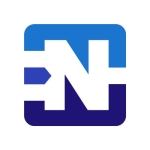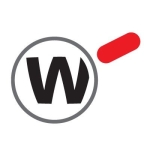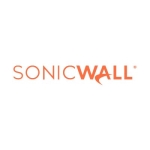What is our primary use case?
We are an insurance company. The core of what we do is service. We manage people and security. We have all the implementation for security.
We have one ERP running on-prem and another one is running on the GCP cloud. We have a cloud service that runs that ERP on GCP. Our other service is running with Microsoft 365. So, we have an in-house AD that syncs with the cloud AD, but it is the firewall that is managing the communication process in between. The on-prem AD sync with the cloud AD is managed by the firewall. It is like a gateway.
A vendor implemented this system for us to use and manage the process. We have an integration with the GCP. We've integrated this system with our network in such a way that you cannot access the GCP applications or infrastructure if you are not on-premises. This integration with the GCP and our virtual network online has been done locally.
How has it helped my organization?
In general, the management of our infrastructure is now easy. I can manage remotely. I can manage on-prem. I can always log in. I have a couple of users who work remotely via VPN because of the license. Not everybody works remotely in my organization. For people who work remotely, we have licenses for them to log in remotely from where they are and use the service. So, managing people, resources, and devices is easy. It has been a good experience. I don't intend to change it because it's giving me the service I need.
In terms of money, it has saved a lot of money. A lot of other organizations that don't have this kind of easy-to-manage layer of security are going through different kinds of attacks. We have a culture of being careful, even though you cannot be a hundred percent careful. When I hear that people have some security issues, I come and check my devices, and I notice that my firewall has actually blocked a lot of things. It gives me rest and peace. So, it saves a lot when you consider the cost of the organization's operations going down, even for one, two, or three hours. We would lose a lot if that happens. It probably saves us over a million dollars a year. The investment is totally worth it.
Our network is a little bit flat. We have a load balancer before getting into our network. We have configured the load balancer on the device itself. We have two major service providers. We have a core business application, and there are some people who use the core business application. We also have some light users. We have set up criteria to give priority to the people who use the core business application. I have a provider that gives me 300 MB to 500 MB, and I have another provider that gives me 20 MB to 25 MB as a backup. I have set priority based on the usage. If you're using the core business application, it pushes you to the fast network. Otherwise, it sends you to the other network. All that has been done on the firewall. It has been very good for this. I have no complaints.
It enables us to implement dynamic policies for dynamic environments, which is important for us. We can control the network based on different kinds of users. We can quickly and easily define the policies. We can set priorities based on different applications, systems, and users on our network.
What is most valuable?
Its security and filtering are most valuable. Every layer of data that comes into the organization goes through it. After setting up the criteria, it automatically filters the traffic. We don't have to check it often. Sometimes, when users complain that they are not able to see a particular thing, we log in to check the scan and see what it has scanned and filtered. It is usually something it has filtered out. It works perfectly.
What needs improvement?
It is easy to use. There is a GUI, and there is a backend that is being managed by our consultant. When we log in to the GUI, we are able to do anything we want to do. Its user interface is good, but it could be better. Currently, you have to know what to do before you can manage a device. If you don't know what to do, you can mess things up. There are some devices that are easier, such as FortiGate. The user interface of FortiGate is more intuitive. It is very easy to log in and configure things. With Cisco, there is also a lower limit on virtual accounts. In FortiGate, they could be in thousands. Cisco is also more expensive.
For how long have I used the solution?
I have been using this solution for about three to four years.
What do I think about the stability of the solution?
It is very stable. I've not had any thought of reconfiguring it. I have just applied my criteria, and I'm good.
What do I think about the scalability of the solution?
Scalability is not a problem because I still have a span of five to seven more years. After that, I might have to go for a bigger device. For now, I have no issues. I can scale up or down. I'm good with that.
How are customer service and support?
Their support is very good. We had an issue where the OS got corrupted. We got Cisco to log in. They did the reset on it, reformatted it, and sent it back to us. Because of the subscription we have with Cisco, we got a copy back in no time. We're now good. We've not been calling their tech support very often. We only call them when we have a very serious issue. I would rate them a nine out of ten.
How would you rate customer service and support?
How was the initial setup?
It wasn't simple. Its implementation doesn't take much time, but we had to get a consultant in. Implementing a Cisco solution from scratch is harder than implementing FortiGate. With FortiGate, I can do my implementation and put all the criteria easily, but with Cisco, I need to do a lot more research, and I need to get someone to help me, but after implementation, it just works.
What about the implementation team?
We had a consultant from a local vendor here called Incognito. Our experience with him was good. I can refer him to anybody.
When we have issues and we need improvement, he comes in. There was a time we noticed that we had lag on our network. We were trying to figure out the cause for it. We were using two service providers but the same backbone. We called him to make the required modifications.
What's my experience with pricing, setup cost, and licensing?
It is more expensive than the other solutions.
Which other solutions did I evaluate?
I'm the CIO here. When I came here, I did an audit of the IT infrastructure to see what was there. I looked at what was existing and thought of improvement. I got in all the vendors and had a meeting with them. I also got in a Cisco vendor and sat down with him and told him about the implementation I wanted. Because of the cost, I didn't change any equipment. So, he did the implementation. At any other place, I would look at the users and implement what is easy for them to manage. For a big enterprise with a whole crew, I would definitely consider Cisco. For any other place, I would go for Fortinet. Cisco is harder to implement and manage, but its stability is good. It is also more expensive. There are other cheaper solutions I would have gone for, but I had to focus on what was existing and improve. I had to make sure I worked with what was existing. We also have Cisco switches.
What other advice do I have?
What it's been configured to do, it does it well. I would rate this solution a nine out of ten.
Which deployment model are you using for this solution?
On-premises
Disclosure: PeerSpot contacted the reviewer to collect the review and to validate authenticity. The reviewer was referred by the vendor, but the review is not subject to editing or approval by the vendor.















